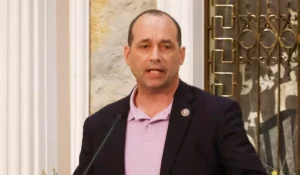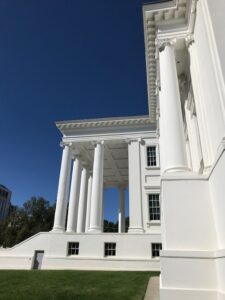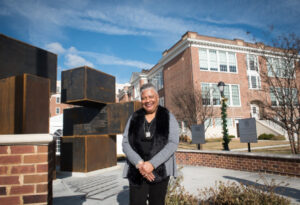 by Joe Fitzgerald
by Joe Fitzgerald
When a governor was accepting gifts and amenities from a supporter some years back, the surprise for many Virginians came when it was time to indict him. The Feds had to do it, because he probably hadn’t broken any state laws, and eventually, after trials and appeals, he didn’t stand convicted of breaking any federal laws either.
The big surprise, the dirty little secret, the obscure fact about campaign finance is that very little is illegal. This is in part because the people who would have to make things illegal are the same people who might be doing the potentially illegal things. Stated another way, a delegate or senator is not going to find fault with a fundraising system they’re going to need next year. Any action they vote to ban might be one they’ve used themselves. A state senator asked to outlaw a particular type of fundraising might instead think it’s worth trying in the next campaign.
The Virginia system is that a candidate can raise as much money as he or she wants so long as it’s all reported. There’s a 69-page document on the state elections website on what needs to be reported and how. There’s a slightly shorter version for a Political Action Committee, a PAC. I’ve read both. Neither is complicated.
But what is complicated is the process to read the reports. CFReports is the state site where anybody on the web can read about any donation to Virginia races from school board to governor, if they know what to look for. VPAP, the Virginia Public Access Project, presents these reports in a more general and more readable form than CFReports, but neither offers any interpretation of the numbers. Is a donation larger than usual? Smaller? Did a major donor give more this year than last? Continue reading

 by the staff of Liberty Unyielding
by the staff of Liberty Unyielding by the staff of The Cadet
by the staff of The Cadet

 from Liberty Unyielding
from Liberty Unyielding by Matt Hurt
by Matt Hurt by Jon Baliles
by Jon Baliles


 by Kerry Dougherty
by Kerry Dougherty 
 by Kerry Dougherty
by Kerry Dougherty
